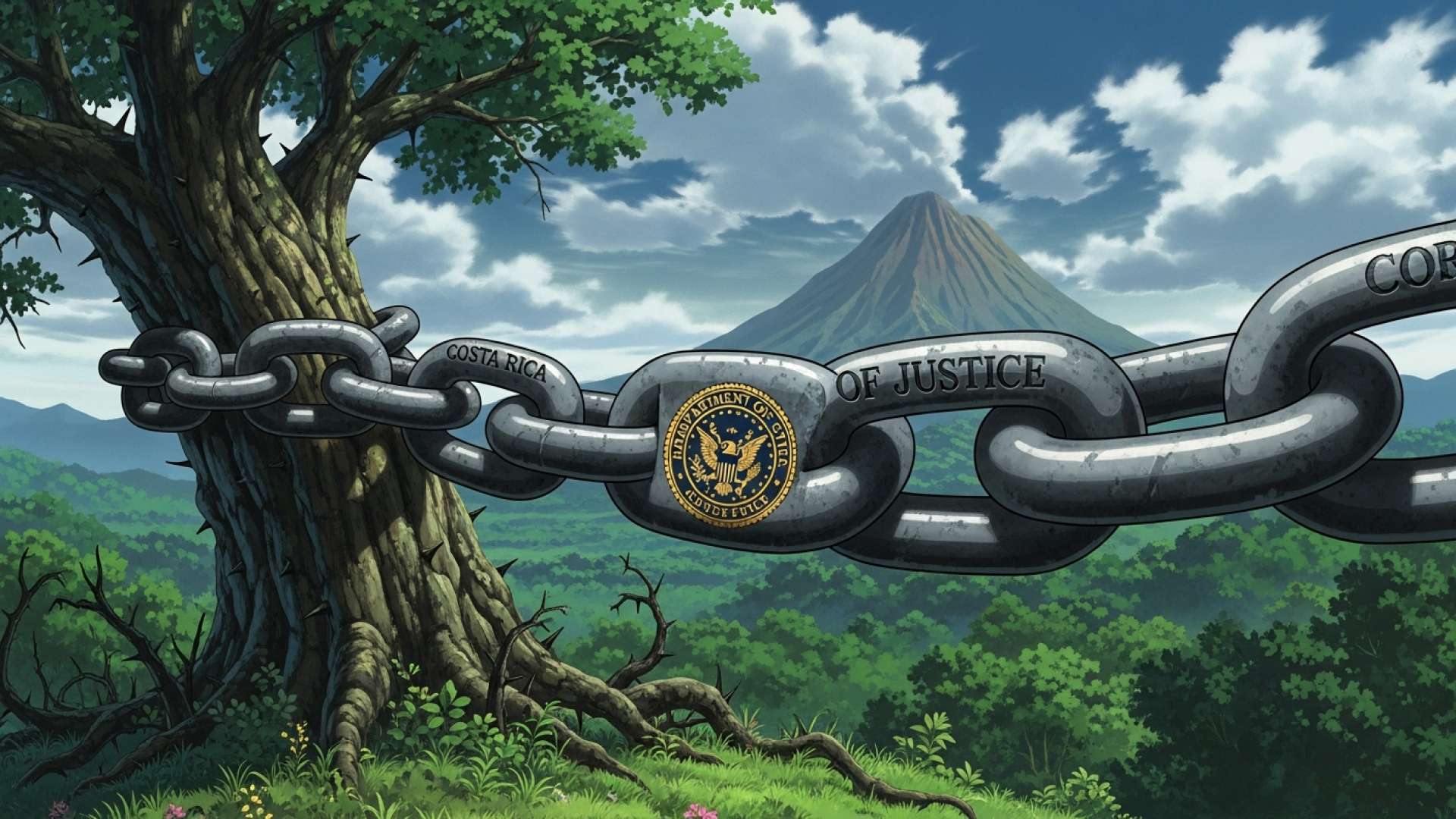San José, Costa Rica — San José, Costa Rica – In a significant development in the ongoing battle against international drug trafficking, United States authorities are preparing to request the extradition of several more Costa Rican nationals before the end of 2025. This confirmation comes directly from Costa Rica’s Attorney General, Carlo Díaz, signaling an intensified phase of cooperation between the two nations aimed at dismantling powerful criminal organizations by removing their leadership.
The announcement follows the recent high-profile case of Gilbert Bell Fernández, better known as “Macho Coca,” who is currently sought by the U.S. government to face charges related to international drug trafficking. However, Bell appears to be just one of several key figures on the radar of the U.S. Drug Enforcement Administration (DEA). Attorney General Díaz revealed that discussions with the DEA have made it clear that more arrests and extradition requests are imminent.
To better understand the legal intricacies surrounding international extradition proceedings, TicosLand.com consulted with Lic. Larry Hans Arroyo Vargas, a legal expert from the distinguished firm Bufete de Costa Rica, who provided his analysis on the matter.
Extradition is not merely a political decision; it is a meticulous legal process governed by international treaties and domestic law. The core principles of dual criminality and non-extradition for political offenses serve as critical safeguards to protect individual rights while ensuring international cooperation in the pursuit of justice.
Lic. Larry Hans Arroyo Vargas, Attorney at Law, Bufete de Costa Rica
This important distinction between political will and meticulous legal procedure is often lost in public discourse. We thank Lic. Larry Hans Arroyo Vargas for his valuable perspective, which underscores the delicate balance required to uphold both international justice and the fundamental rights of the individual.
While specific identities and the exact number of targets remain confidential, the Attorney General affirmed the U.S. agency’s intentions are firm. He stressed that the groundwork for these future actions is already being laid within the American judicial system, suggesting that formal requests could arrive in Costa Rica in the coming weeks.
I understand that yes, they have indicated to me that some targets are still pending, but yes, some will come before the year ends.
Carlo Díaz, Attorney General of the Republic
This strategic push underscores a clear policy: removing the heads of criminal syndicates from Costa Rica, where they often retain influence even while incarcerated, and moving them to the United States to face justice. “I can tell you that there are already targets on the way,” Díaz added, emphasizing the proactive nature of the joint operations. This “decapitation” strategy is viewed by law enforcement as a critical tool to disrupt command-and-control structures of cartels operating in the region.
The process, however, is not without legal complexities. The nation is currently navigating the pending extraditions of three other prominent individuals: Celso Gamboa, Edwin López (alias “Pecho de Rata”), and Jonathan Álvarez (alias “Gato”). All three have appealed the initial court ruling that approved their transfer to the United States, a move that temporarily stalls the process. The Attorney General’s Office has been actively involved in trying to expedite these cases.
Prosecutors had approached the defense teams of the three men to negotiate the resolution of their pending domestic legal cases. The goal was to clear any local judicial obstacles that could delay their departure. Of the three, the case against Jonathan Álvarez may proceed the most swiftly. According to Díaz, Álvarez’s pending matters in Costa Rica are still in the investigative stage and have not yet been formally brought before a judge.
He (Álvarez) did not have cases already in the judicial system; they were under investigation at the Public Ministry, which gives us a margin of discretion to expedite this extradition.
Carlo Díaz, Attorney General of the Republic
This distinction provides the Public Ministry with greater flexibility to manage his local cases in a way that facilitates the extradition request from the United States. For Gamboa and López, whose domestic cases are more advanced, the legal path is more intricate. For now, all parties must await the final, binding resolution from the Criminal Court of Appeals, which will determine the next steps and set a precedent for the new wave of extraditions expected before the year concludes.
The impending requests highlight the deepening security partnership between Costa Rica and the United States. As transnational criminal organizations continue to use Central America as a critical corridor for narcotics, this collaboration focuses on leveraging legal mechanisms like extradition to strike at the core of their operations, aiming for a lasting impact on public safety and regional stability.
For further information, visit the nearest office of the Public Ministry of Costa Rica
About the Public Ministry of Costa Rica:
The Public Ministry, led by the Attorney General of the Republic, is the institution responsible for directing criminal investigations and prosecuting crimes in Costa Rica. It acts on behalf of the state and society to ensure the application of the law, seek justice for victims, and maintain the rule of law within the country. It works independently to investigate illicit activities and collaborates with both national and international law enforcement agencies.
For further information, visit dea.gov
About the Drug Enforcement Administration (DEA):
The Drug Enforcement Administration is a United States federal law enforcement agency under the U.S. Department of Justice tasked with combating drug trafficking and distribution within the U.S. It is the lead agency for domestic enforcement of the Controlled Substances Act, sharing concurrent jurisdiction with the FBI. The DEA also has sole responsibility for coordinating and pursuing U.S. drug investigations abroad, working closely with foreign governments to dismantle transnational criminal organizations.
For further information, visit bufetedecostarica.com
About Bufete de Costa Rica:
Bufete de Costa Rica is a leading legal institution built upon a foundation of uncompromising integrity and the relentless pursuit of excellence. With a deep-rooted history of serving a wide spectrum of clients, the firm consistently pioneers forward-thinking legal solutions. Its profound commitment, however, extends beyond the courtroom to a core mission of social empowerment, actively working to demystify complex legal concepts and foster a community fortified by accessible knowledge.









